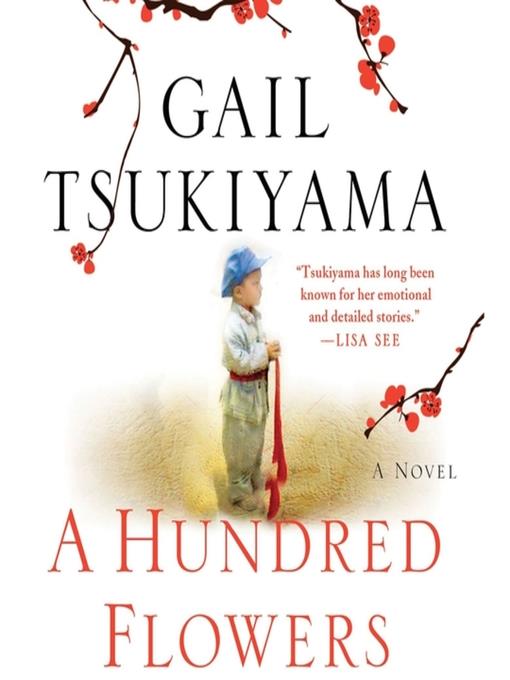
A Hundred Flowers
A Novel
کتاب های مرتبط
- اطلاعات
- نقد و بررسی
- دیدگاه کاربران
نقد و بررسی

June 18, 2012
Tsukiyama’s new novel takes place in 1958 and its title comes from Chairman Mao’s 1957 declaration of openness: “Let a hundred flowers bloom; let a hundred schools of thought contend.” What actually blooms is fear and confusion, when university professor and intellectual Sheng Ying is taken by the police to a re-education camp, leaving his wife, Kai Ying, son Tao, aunt Song, and father Wei, also a professor, to make sense of his fate. To protect Tao, his mother tells him that his father is away working, but when the boy is teased at school about it, he demands to know the truth, forcing Wei to admit his role in Sheng’s arrest and creating a rift in the fragile family. Wracked with guilt, Wei goes in search of his son, hoping to put his family’s life back together. Tsukiyama (Women of the Silk) adopts the contemporary template of multiple perspective narration to explore the relationships of a close family in a closed society. Though complex human beings fail to emerge from the facade of stock voices, the tenderness the author shows for her characters creates a sympathetic portrait of intellectuals trying to live honestly in the shadow of oppression. Agent: Linda Allen.

Starred review from August 27, 2012
The year is 1957, and China is very much a land unfriendly to intellectuals and artists of any kind. A teacher named Sheng is sent to a prison camp for writing a letter critical of the Communist Party, leaving his wife to raise a young child who can't understand why his father has disappeared, until a tragic accident changes everything. Tsukiyama's tale of love, loss, and courage is brought to life by Simon Vance. Narrating in a soft, straightforward tone, Vance is understated but renders the characters well. With only minor shifts in tone and dialect, Vance creates well-rounded, and believable characters without even remotely attempting to tackle a Chinese accent. The result is brilliantly realized listening that will have listeners enthralled from start to finish. A St. Martin's hardcover.

In 1957 Mao encouraged his people to share ideas about strengthening China. After realizing the extent of the opposition, however, he changed his mind, sending thousands who dared to disagree with him to ÒreeducationÓ camps. Simon Vance narrates this story of Mao's failed Hundred Flowers campaign and how it affects an educated and once-wealthy family after the head of the household is arrested. The point of view alternates among three generations of individuals, and Vance meets the challenge by adjusting his pitch and tone to telegraph each change. The character-driven novel is enhanced by Vance's insightful pacing and restrained use of drama. The production ends with an exclusive interview with the author, who discusses her writing life, research, and the history of 1950s China. C.B.L. © AudioFile 2012, Portland, Maine

July 1, 2012
Taking its name from Mao's One Hundred Flowers Campaign, Tsukiyama's novel tells the story of Kai Ying and her family living in the wake of the arrest of her husband, Sheng. Accused of writing a letter that criticized the Communist Party, Sheng is sent to a labor camp in a distant province, leaving Kai Ying to support her young son and father-in-law through her work as an herbalist. After her son suffers a bad accident, the stress of Sheng's absence begins to show in the family. The revelation of a shocking family secret causes Kai Ying to reevaluate all that she knew. Tsukiyama's close attention to detail and descriptive language paint a vivid picture of the daily life of Kai Ying and her family. Tsukiyama gently envelops the reader into the quiet sadness that permeates the entire household while weaving in the multiple hardships the family faces under communism. Strength of community; support and love of family, both natural and adopted; and the ability to heal and overcome loss are major themes within the moving novel.(Reprinted with permission of Booklist, copyright 2012, American Library Association.)

























دیدگاه کاربران